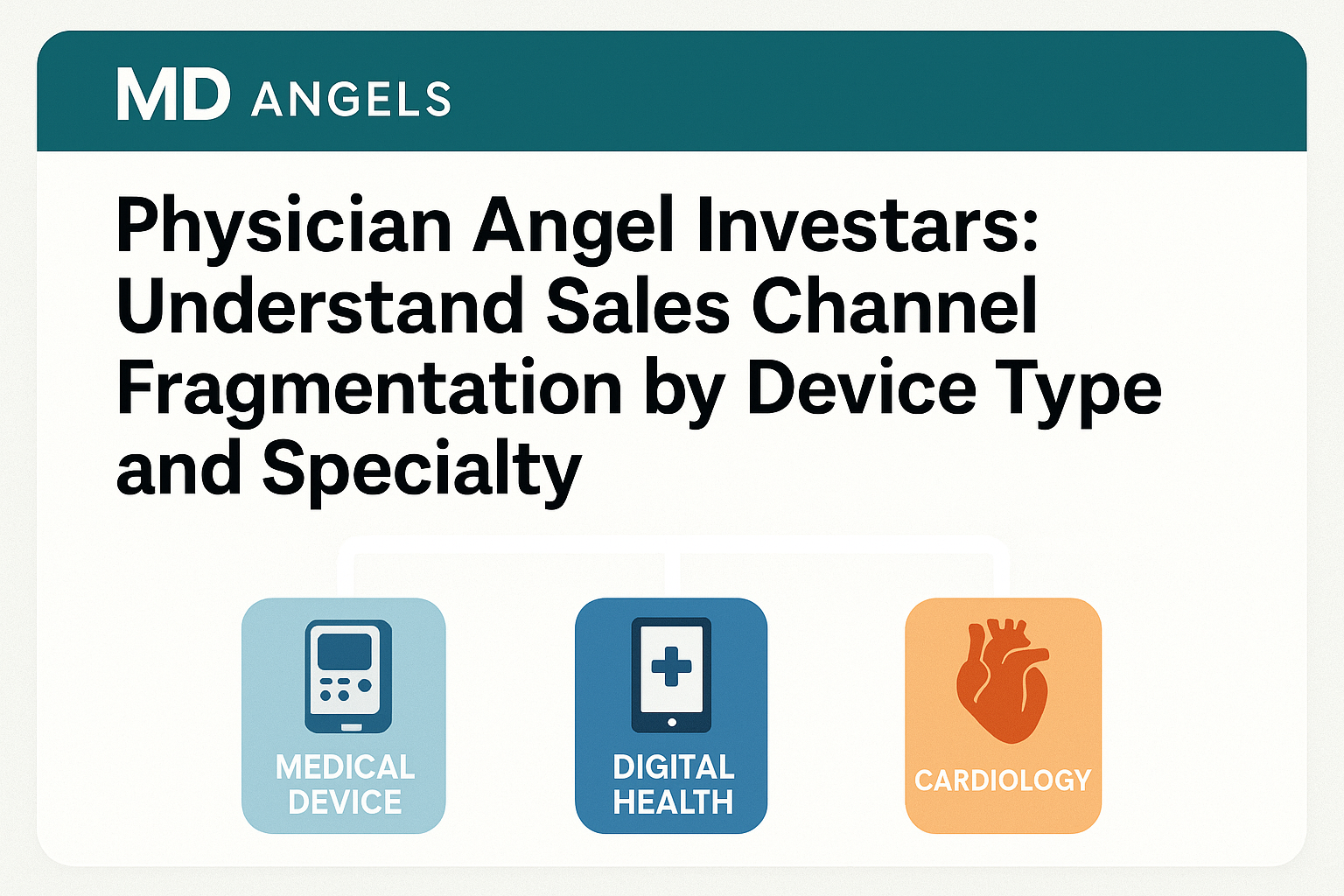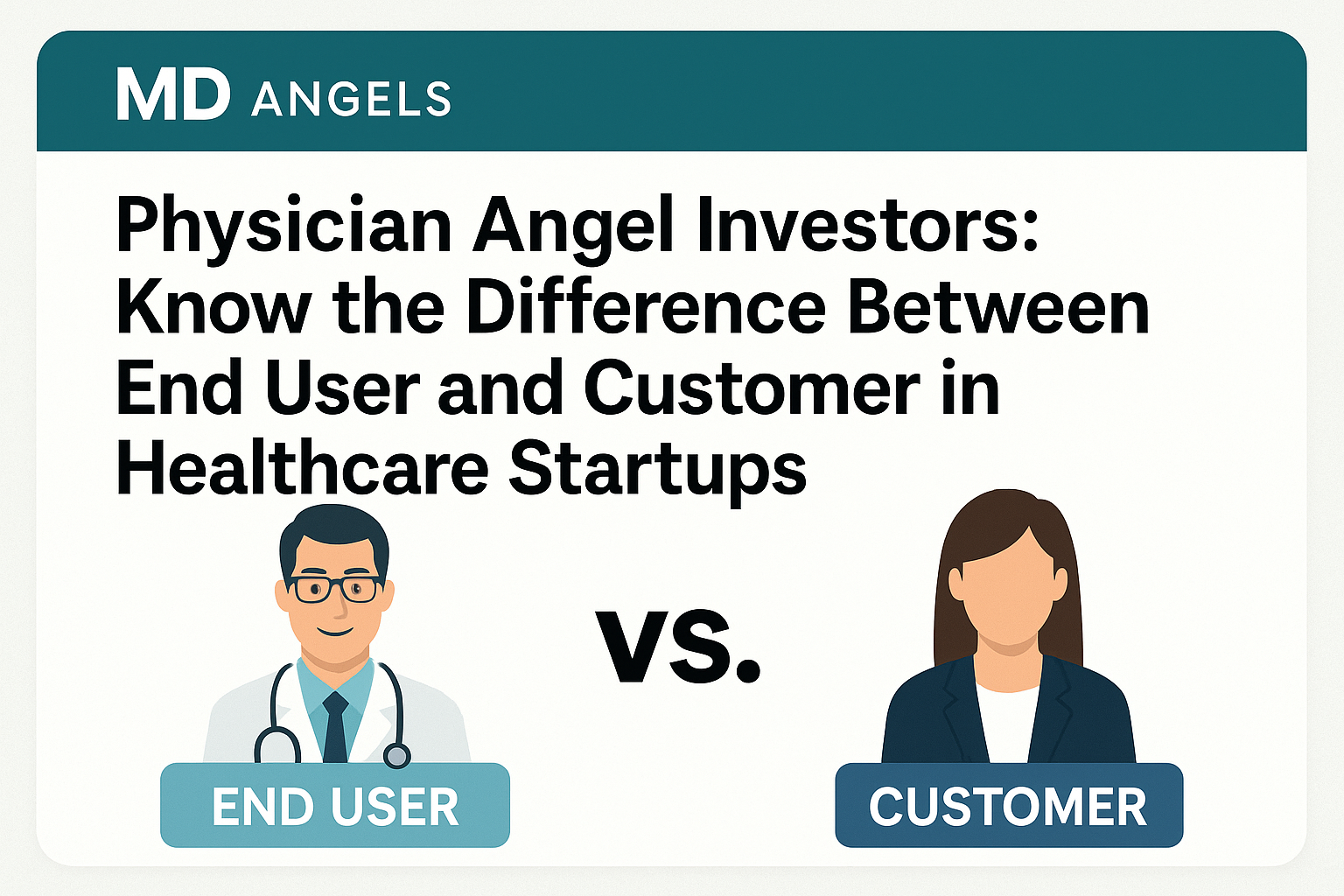May 06, 2025 .
Physician Angel Investors: Understand Sales Channel Fragmentation by Device Type and Specialty
Physician angel investors are uniquely positioned to evaluate healthcare startups—not just on clinical merit, but on go-to-market feasibility. One of the key but often overlooked factors that shapes the path to adoption for medical devices is sales channel structure strong.
Specifically, understanding whether a market is dominated by independent sales reps or corporate-employed reps can reveal a lot about how quickly and effectively a device might penetrate a given specialty.
Sales channel fragmentation isn’t random. It’s deeply tied to device type, procedure setting, and clinical specialty. And for investors, recognizing these patterns can provide a sharper lens on distribution strategy, margin structure, and the scalability of early traction.

Take orthopedics, for example. This is a specialty where independent sales reps—often with deep relationships and local influence—play a prominent role in device adoption. These reps are agile and incentivized, but they may lack the infrastructure of a corporate team. That means adoption can be hyper-local and relationship-driven, which can help startups gain initial traction in small pockets but may challenge broader scale without significant rep training and coordination.
Contrast that with interventional cardiology or large capital equipment in radiology. These spaces are typically served by corporate-employed sales teams from companies like Medtronic, Philips, or GE. In these specialties, hospital systems expect polished, compliant, and technically fluent reps—often supported by robust training and clinical education teams. For startups entering these areas, selling may be slower initially but more scalable once a foothold is established.
As a physician investor, your experience in a particular specialty gives you insight into how devices are actually introduced into practice. Is your specialty known for entrepreneurial, rep-driven adoption? Or is it dependent on large, centralized purchasing decisions and formal trials?
Knowing this helps you assess:
- Whether the startup’s sales plan aligns with real-world rep dynamics
- If their pricing strategy leaves room for rep commission in independent markets
- How much operational overhead they’ll need to scale in corporate-driven environments
Ultimately, the structure of the sales channel defines the pace and nature of initial adoption—and it varies dramatically by specialty and device type. Physician investors who recognize this can provide sharper diligence, better mentorship, and smarter capital to healthcare startups navigating the complex terrain of medical device commercialization.



